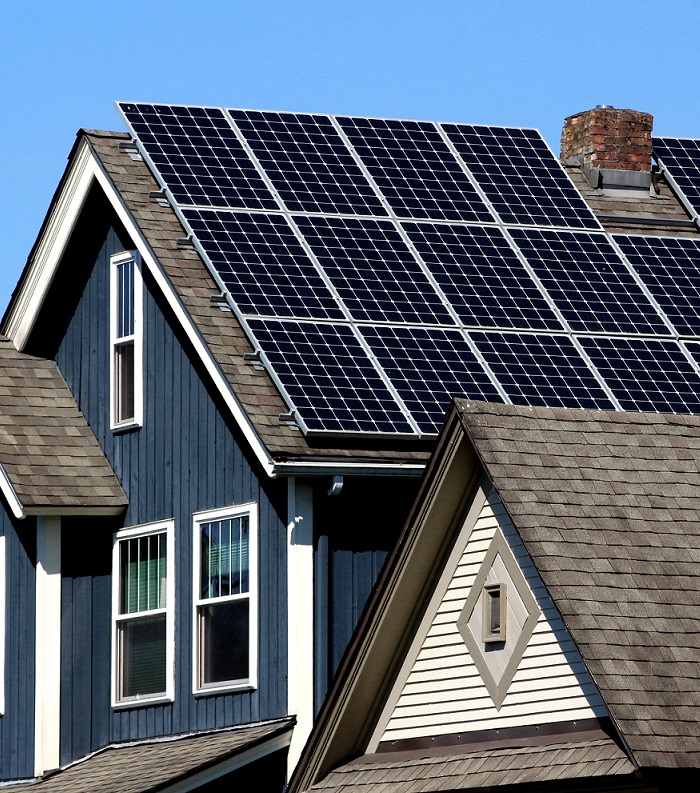
Do you want to switch to solar power for your home’s electricity needs? Harnessing the sun’s energy to power up your home has several benefits. Using solar power reduces the load on the electrical power grid, which is environmentally friendly and saves significant costs on power bills.
More homeowners nowadays are considering using a solar system for their home. As you go ahead with solar power installation, you will need to determine how many solar panels are needed in your home to fulfil your energy needs optimally.
In this blog, we try to determine the key factors that influence the decision of how many solar panels are required in a home.
How many residential solar panels you need to power your home solar system is primarily determined by your energy consumption and when you consume that energy. The amount of energy consumed by your household depends on various factors, such as the number of appliances you use, the size of your property and how many people are living and using the electricity. By making accurate assumptions and estimations, you can arrive at a fairly reliable assessment of your energy needs.
On your current energy bill there is a heading called “Average daily Usage” with a kWh figure listed (sometimes they will have “Same time last Year” comparison as well so you can see whether your usage is increasing or remaining the same)
A 6.6kW solar system will generate around 24-26kWh’s of solar energy per day on average
A 7.8kW solar system will generate around 28-39kWh’s of solar energy per day on average
A 10.3kW solar system will generate around 38-40kWh’s of solar energy per day on average
A 13.2kW solar system will generate around 48–52kWh’s of solar energy per day on average
Make sure that your average daily usage amount will be covered by the solar system size.
Remember your electricity bill does not distinguish between day and night time energy usage so your bill will show a full 24h usage and not just the day time usage the solar will be able to cover.
To make the most of residential solar systems, it is crucial to address certain factors that can impact the efficiency of your panels.
Ensure that your solar panels receive direct sunlight without obstructions, such as trees, buildings, any fixtures on your roof that will cast a shadow. Sometimes this is unavoidable but even a small amount of shading can significantly reduce the output of your panels.
Depending on your location, panels should face a specific direction to capture the most sunlight. In the northern hemisphere, panels should face south, while in the southern hemisphere, north-facing panels are recommended. The flatter the panels are the less the direction they are installed matters.
The further north in Australia you are the less difference north facing panels will make.
Keeping your residential solar panels clean from dust and debris is always recommended to keep them operating optimally, but will not have anywhere near the effect that a shadow cast over your panels will, for example.
Choosing the right solar system size involves analysing your energy consumption patterns over time. Start by reviewing your past monthly energy bills to calculate your average usage. Once you have this data, you can match it to the available solar system sizes that are on offer in the market.
The efficiency of your solar panels is influenced by the number of peak sun hours in your region. Peak sun hours represent the amount of sunlight available for energy production during the day. Analysing these hours and aligning them with your energy consumption allows you to select an appropriate panel size that ensures efficient energy generation.
Sunjuice Solar will help you look at your energy bills and determine what solar system size will suit you best.
Call us now to assist you in determining what that might be and we can use our insights and experience specifically for you and your household based on our 14 years of installing solar system around the Wide Bay/ Fraser Coast area.
In conclusion, the number of solar panels needed to generate the right amount of solar power for your home hinges on factors like what is your current energy consumption, budget, future plans for growth, how large is your roof, what way will the solar panels face on your roof and what time of year it is. In winter the solar energy generated by your solar system can be as much as 50% less than it is in summer.
Presently the Queensland government is subsidising the cost of your solar system and they are paying you for the excess solar you are not using and export onto the energy grid.
This amount fluctuates every year depending on the energy price and the government subsidies get less and less each year, as they won’t be subsiding this industry forever so best to try and take advantage of the rebates whilst they are still being provided.
Every year they drop in value so the longer you wait the more expensive installing a solar system will become.
If you need advice or assistance with solar power installation for your home, contact us at (07) 4183 0301 and get a free quote.
Contact us now for a site survey and confirmation that we are able to supply you with half-price electricity.